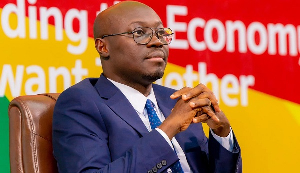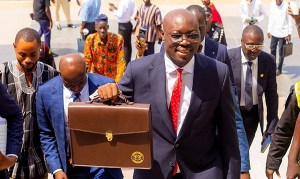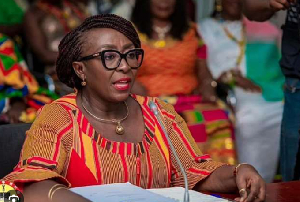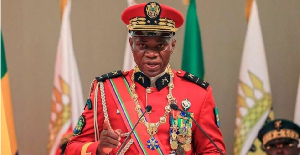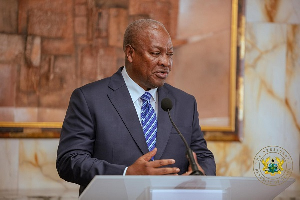Due To Corporate Tax Dodging
Countries in West Africa affected by the Ebola virus lose high revenue as a result of corporate tax dodging compared to the amount of money spent on healthcare, says ActionAid.
The west African countries, Liberia, Sierra Leone as well as Guinea highly hit by the virus lost an estimated $287.6m through corporate tax dodging in 2011 and spent just $237m on health.
Extreme poverty, weak governance and public health spending amongst the lowest in the world meant that Liberia, Sierra Leone and Guinea were ill-equipped to deal with the Ebola virus. Before the outbreak, the three countries had an average of one hospital bed per 2,128 people.
“Liberia had just 51 doctors for almost 4.2 million people – that is only one doctor to help more than 80,000 people in a country where preventable, curable diseases like malaria, measles and TB claim thousands of lives each year. If Liberia had a stronger health system in place, a lot more could have been done earlier to control the spread of Ebola.
“Greater investment is needed and big businesses profiting from Liberia must contribute more by paying their fair share of tax to help provide better healthcare for our citizens,” said Korto Williams, country director, ActionAid Liberia.
The African Union estimates that Africa loses up to $60bn each year due to tax dodging by big companies. That is more than they receive in aid from rich countries.
Western aid is also essential to support the building of effective health systems and developing countries have a responsibility to ensure that where taxes are collected, they are spent on public services that benefit everyone, not just elites.
“Ending tax dodging is not the panacea for the present crisis. But it would help ensure that there is more money available to spend on health as well as other vital public services like schools and clean water. Better public services will be needed when we set about rebuilding our nations and economies once again, and they will be key to preventing the next crisis before it starts,” said Williams.
“It is not just an African problem, it has to do with the over complicated financial system where there are tax havens where corporations are not taxed at all but also do not have any transparency, these countries sign double taxation agreements with other countries,’’ says ActionAid’s Global Advocacy Coordinator, Sameer Dossani.
“We need companies to pay their fair share, we need companies to tell us where they have their operations, there is need for country to country reporting so that we can know the amount of they are paying on their budget,’’ Dossani said.
Australia’s prime minister, Tony Abbott says key to tax evasion is information sharing where corporations must pay its fair share of tax under the jurisdiction it operates its business.
The G20 leaders agreed through the Brisbane communiqué to take actions to ensure the fairness of the international tax system and to secure countries’ revenue bases.
“Profits should be taxed where economic activities deriving the profits are performed and where value is created.
“We welcome the significant progress on the G20/OECD Base Erosion and Profit Shifting (BEPS) Action Plan to modernise international tax rules.
We are committed to finalising this work in 2015, including transparency of taxpayer-specific rulings found to constitute harmful tax practices. We welcome progress being made on taxation of patent boxes.
“To prevent cross-border tax evasion, we endorse the global Common Reporting Standard for the automatic exchange of tax information (AEOI) on a reciprocal basis.
“We will begin to exchange information automatically with each other and with other countries by 2017 or end-2018, subject to completing necessary legislative procedures. We welcome financial centres’ commitments to do the same and call on all to join us,’’ the communiqué says.
“To their credit, the Brisbane declaration addresses a crucial issue: where multinational corporations pay tax. If an Australian mining company is making profit from selling what it mines in Africa, it should pay a fair share of tax in the African country. We hope and expect this this will be translated to cornet action benefiting developing countries,” stated ActionAid’s Sameer Dossani.
“The G20 countries are more concerned with raising their own tax revenue than with establishing global solutions which will end the ongoing plunder of developing countries. Underfunded health care schemes in West Africa have in part led to the catastrophic spread of the Ebola virus. Better quality public services, funded by ending corporate tax dodging, is the long-term solution,” he said.
Winnie Byanyima, the executive director of Oxfam International says Ebola is a flu therefore it is easy to prevent because we know how it is transmitted, but “why it could not be stopped quickly is that those countries-Liberia, Sierra Leone have been at war so they do not have proper infrastructure systems such as health, transportation and communication’’.
“International community must come in to give support because of lack of resources to deal with it, by building the health, transportation and communication systems.
“This means that the countries must be able to collect all the domestic resources by plugging the tax loopholes which is in the global system-international corporations must pay their fair share of taxes so that the countries can have the capital to develop the health, communication and transportation systems,’’ she said.
Tim Costello chairman of Civil Society 20-which representatives of civil society organisations research into Ebola was not done by rich countries “because we said it only breaks out in Africa and it is patchy, and they don't have a big market because they’re poor’’.
“That is why we don't have a vaccine. That is why we don't have a treatment - because it didn't affect us. It is a profound government market failure that suddenly we said, ‘Oh, Ebola is reaching us’ and we are scrambling. The G20 must actually have fairness for people who are the poorest,’’ he said.
Diaspora News of Monday, 17 November 2014
Source: Samuel Hinneh (Brisbane, Australia)


